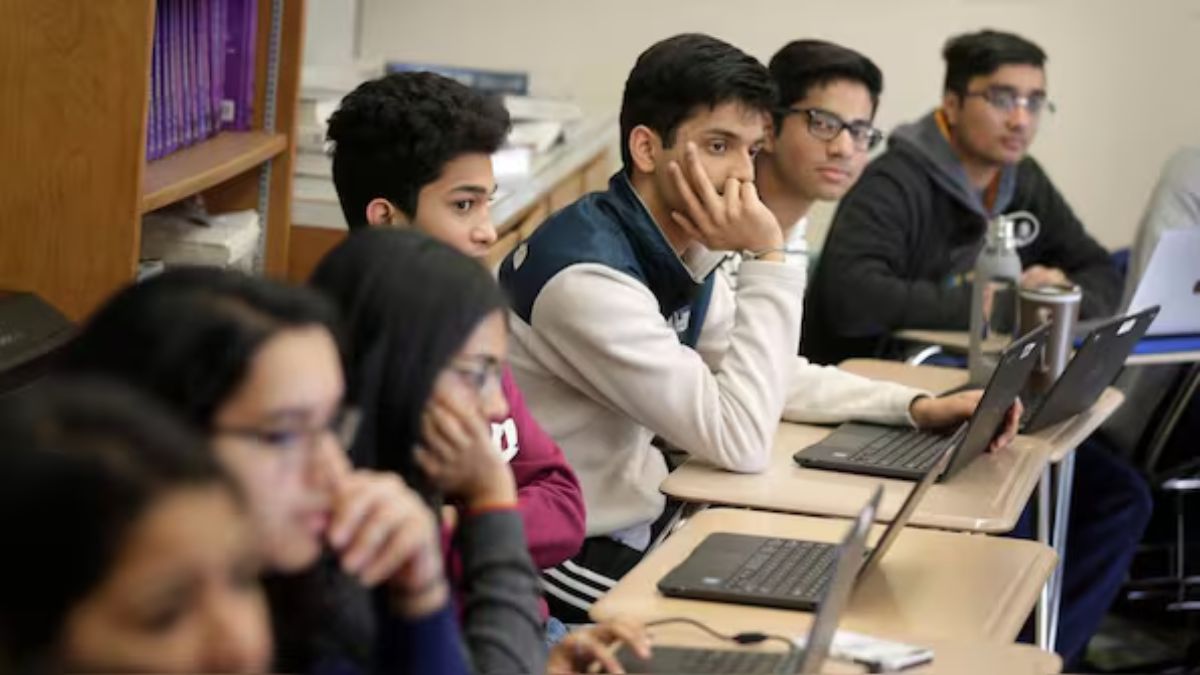For years, the US has been the ultimate dream destination for Indian students—a place for world-class education, lucrative career prospects, and the promise of a brighter future. But lately, that dream feels more like a tightrope walk.
With recent deportations under the Trump administration and the rollout of stricter immigration policies, many students are finding themselves tangled in a web of uncertainty and financial strain, forcing them to reconsider their aspirations in a land that once seemed full of endless possibilities.
Here’s how Trump’s deportation threat has left Indian students in the US worrying.
Random checks by ‘officers in uniforms’
According to several students, random checks by “officers in uniform” have become increasingly common. These officers often ask to see student IDs or request to check work authorisation documents, adding to the stress many students are already facing.
International students on F-1 visas are legally allowed to work up to 20 hours a week on-campus. However, to cover living expenses and pay off significant loans, many students breach this worktime cap and take up off-campus jobs in restaurants, gas stations, and retail stores. With the rising cases of random checks, students said fears of deportation within the community have intensified.
“I used to work in a small café after college to cover my monthly expenses. I earned $7 per hour, working six hours a day. It was a comfortable arrangement, but I quit last week after hearing immigration authorities might crack down on unauthorised work,” a graduate student from Illinois told the Times of India. “I can’t afford to take any chances, especially after borrowing $50,000 (Rs 42.5 lakh approx.) to study here.”
Some students say they have been questioned by local police, while others reported being “interrogated” by US Immigration and Customs Enforcement (ICE) or US Customs and Border Protection (USBP) agents.
“Last week, officers came in and started questioning the staff at the restaurant where I work six hours every day after college. They asked for my college ID. Luckily, I was coming out of the restroom, so I told them I was just using the facilities. My employer backed me up,” an Indian student pursuing a master’s in cybersecurity in Atlanta shared with the publication.
“The experience was so terrifying that I resigned the very next day,” the student added, explaining that he worked as a waiter to fund his education.
According to the Indian Student Mobility Report 2024 by University Living, a student housing marketplace, the total expenditure by Indian students in 2019 was $8.3 billion, which is expected to hit $17.4 billion by 2025.
Another student who enrolled in Arizona State University for a master’s degree in electrical engineering in December 2024 told _the Hindu, “_There is no way we can think of taking a chance as personnel from the Immigration and Customs Enforcement (ICE) are on the prowl all the time, and we have learnt that they are in no mood to hear any excuses. Any attempt to find work outside the university campus may land us in deep trouble, and we may be deported.”
Troubles for visa sponsorship
Indian students who have graduated from US universities have begun finding it increasingly difficult to secure jobs, as Trump’s “ America First ” agenda continues to tighten its grip on immigration policies.
Sai Aparna, a computer science graduate from GITAM University in Visakhapatnam, came to the US with the hope that an American degree would open doors to a successful future. However, despite her strong academic performance, Aparna is struggling to find a job.
“President Trump’s focus on localisation has made visa sponsorships by employers extremely difficult. Jobs have become scarce. I never imagined things could get this bad,” Aparna told The Hindu.
Before Trump took office, reports revealed that many Indian H-1B visa holders were avoiding travel outside the US, fearing they may not be allowed to re-enter due to possible changes in visa rules.
Trump’s advisers, such as Tesla’s Elon Musk and Republican politician Vivek Ramaswamy, have voiced support for high-skill immigration. However, Trump has offered conflicting views on the H-1B programme. At a New Year’s Eve party in 2024, he told reporters: “We need smart people coming into our country.”
But in a 2016 Republican presidential debate, he said: “We shouldn’t have it. Very, very bad for workers.”
The H-1B visa, which allows skilled foreign workers with at least a bachelor’s degree to work temporarily in the US, can be renewed every three years and is often seen as a stepping stone to permanent residency and a green card. Indian professionals, in particular, are some of the primary beneficiaries of this visa.
Is the American dream coming to an end?
As the situation grows increasingly tense, experts are urging students to steer clear of unauthorised work.
“While we understand that managing expenses is a major concern, it should not come at the expense of their education and legal status in the US. The scrutiny is only going to intensify from here,” Ravi Lothumalla, a Texas-based university admissions expert told TOI.
For many middle-class families, sending a child to the US for higher education has long been a matter of pride. However, in the current climate, many students are starting to reconsider their options.
Raj Nunna, the founder and managing director of Unilix Overseas Pvt. Ltd. in Vijayawada, told The Hindu that there has been a 40 per cent drop in enquiries from students seeking to study in the US. Instead, students are now increasingly considering European countries like the UK, Germany, Ireland, Italy, and France as alternatives for higher education.
The shifting tides reflect the growing uncertainty surrounding the once-coveted American dream, leaving many students questioning whether the risks still outweigh the rewards.
With input from agencies
)